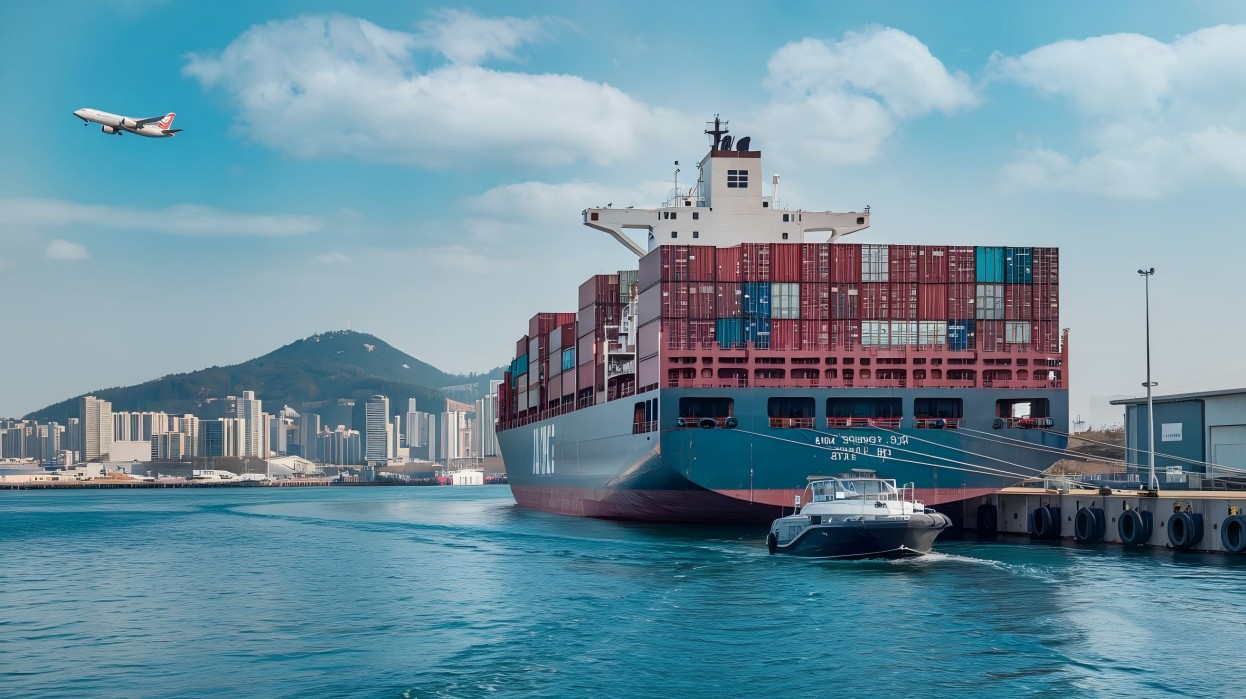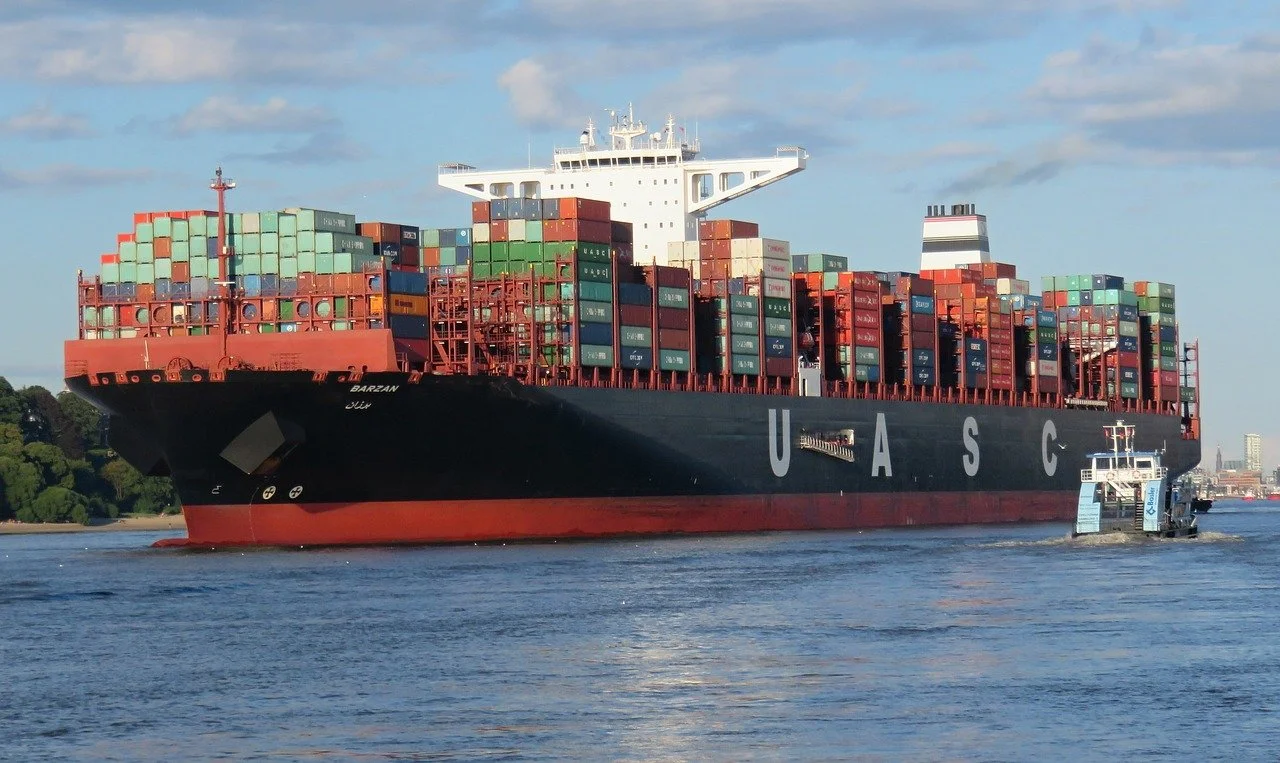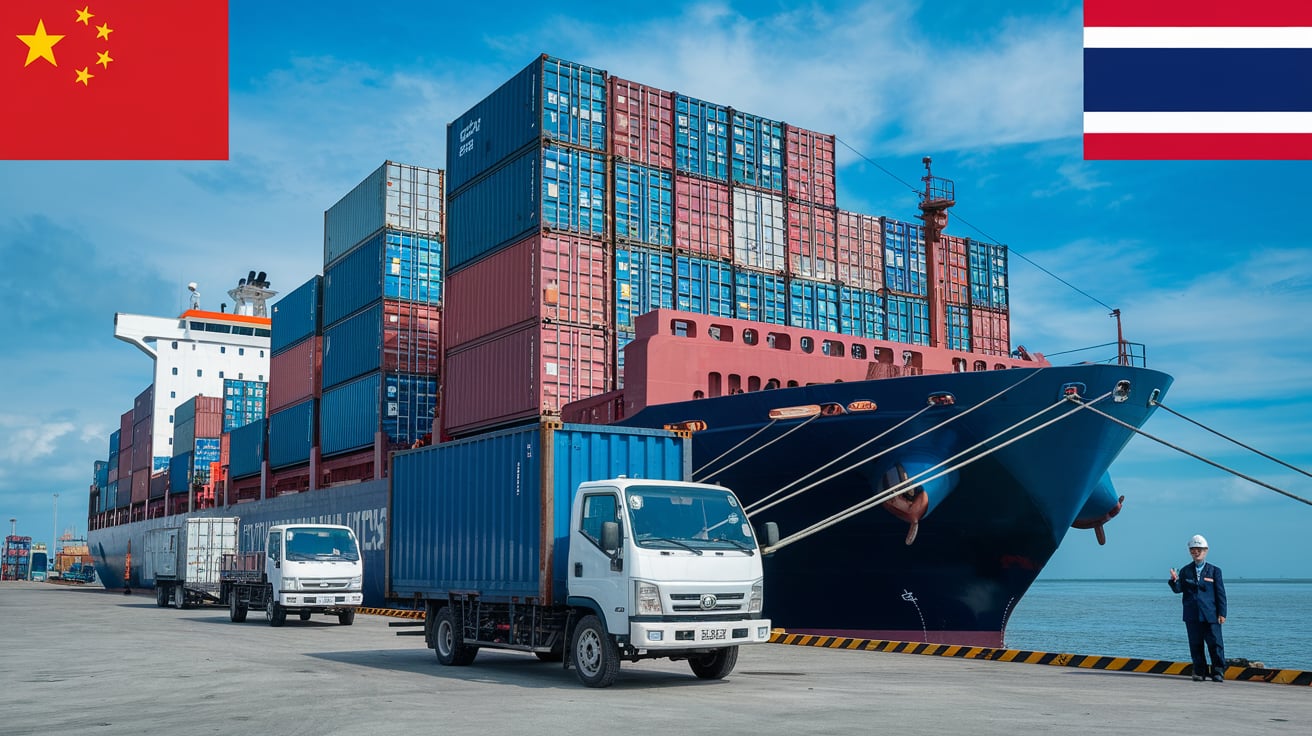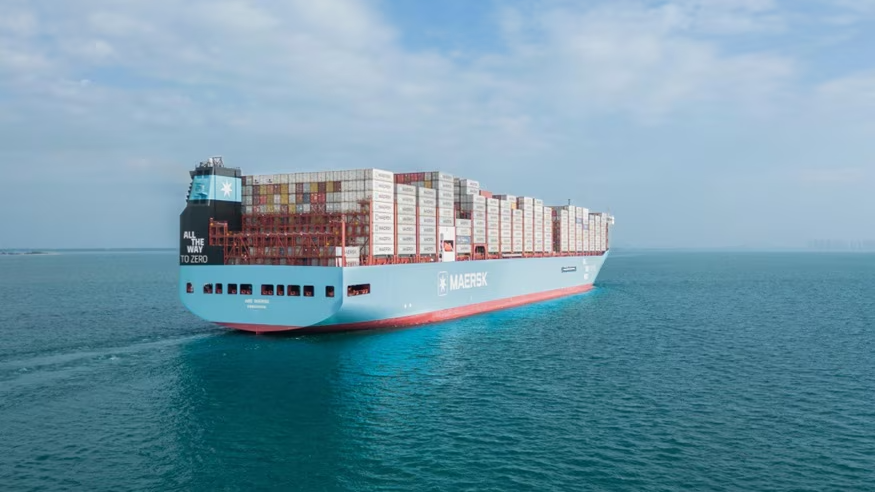Shipping goods from China to Sudan involves navigating a complex landscape of logistics options and considerations. With various methods available, including air freight, sea freight, and express delivery services, importers must weigh factors such as speed, cost, and shipping requirements to determine the best approach for their needs. Understanding the advantages and limitations of each shipping method, as well as essential aspects like customs clearance, insurance, and effective communication with freight forwarders, is crucial for ensuring a smooth and efficient logistics process. In this guide, we will explore the cheapest shipping options, factors to consider when choosing a shipping company, and tips for optimizing your shipping strategy from China to Sudan.
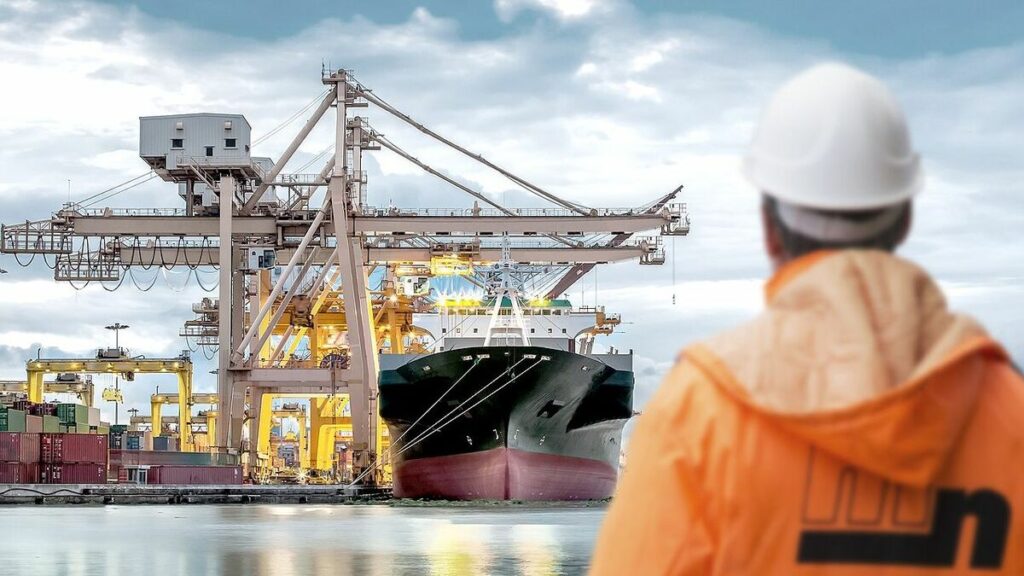
Overview of Shipping Options from China to Sudan
Shipping goods from China to Sudan requires an understanding of various logistics options. As a vital trade route, this path offers different methods tailored to the unique needs of importers. Below are the primary shipping methods available for this route, comparing their distinct characteristics.
Air Freight vs Sea Freight
Air Freight
Air freight is one of the fastest methods of transporting goods internationally. Importers looking for swift delivery often opt for this service, particularly when dealing with perishable items or urgent shipments. The following are key points regarding air freight:
- Speed: Air freight typically takes 1-3 days for delivery, making it ideal for time-sensitive shipments.
- Cost: While air freight is faster, it is generally more expensive than sea freight, especially for larger volumes. Rates can vary based on weight, size, and destination.
- Cargo Limitations: Air freight has restrictions on the types of goods that can be transported, including hazardous materials and oversized items.
Sea Freight
Sea freight is often the preferred choice for bulk shipments and larger cargo. Despite longer transit times, it offers advantages that can make it more appealing for importers.
- Cost-Effectiveness: Sea freight is significantly more economical for transporting large volumes, making it an attractive option for businesses looking to minimize costs.
- Capacity: Shipping containers can accommodate various goods, including oversized items. This flexibility is essential for many importers.
- Transit Time: Sea freight generally takes 20-40 days, depending on the shipping route and port handling times.
Comparative Analysis Table
| Shipping Method | Speed | Cost | Cargo Limitations |
|---|---|---|---|
| Air Freight | 1-3 days | Higher | Restricted items, weight limits |
| Sea Freight | 20-40 days | Lower (bulk pricing) | Capacity for large shipments |
Express Delivery Services
Express delivery services offer a unique blend of speed and convenience. These services cater to businesses that require not only quick shipping but also flexibility:
- Prompt Delivery: Typically, express services guarantee delivery within 1-5 days.
- Comprehensive Tracking: Advanced tracking systems provide real-time information on shipment status.
- Ideal for Small Shipments: Express services are well-suited for smaller packages, making them a go-to choice for e-commerce businesses.
Door-to-Door Shipping
Door-to-door shipping is increasingly popular among businesses for its convenience. This service entails handling all logistics from the supplier in China to the final destination in Sudan, encompassing:
- Convenience: Importers do not need to worry about intermediary handling or customs processes; the freight forwarder manages everything.
- Cost Structure: While generally more expensive than traditional shipping methods, door-to-door services can save costs associated with terminal handling and customs clearance.
- Comprehensive Services: Companies like Dantful International Logistics provide tailored door-to-door solutions, enhancing overall customer satisfaction.
READ MORE:
- Shipping From China To Algeria
- Shipping From China To Angola
- Shipping From China To Morocco
- Shipping From China To Nigeria
- Shipping From China To Kenya
- Shipping From China To Tanzania
- Shipping From China To South Africa
Factors to Consider When Choosing a Shipping Company
When selecting a shipping company for your needs, various essential factors come into play. Understanding these factors can lead to better decision-making and optimize your logistics experience.
Shipping Costs and Rates
The cost of shipping can have a significant impact on overall business expenses. It’s crucial to compare the shipping rates offered by different companies:
- Transparent Pricing: Look for providers that offer clear and detailed pricing structures. Hidden fees can significantly inflate costs.
- Quotation Comparisons: Obtaining multiple quotes will provide a clearer picture of market rates and enhance negotiation power.
Transit Times
Transit time is a critical component of shipping logistics. Depending on the urgency of your shipment, different methods will offer varying timelines:
- Time Sensitivity: For urgent deliveries, air freight or express services may be necessary, while sea freight is better for non-urgent shipments.
- Reliability of Timelines: Choose a shipping company with a track record of meeting their promised timelines to avoid unnecessary delays.
Reliability and On-Time Delivery
Reliability is paramount when choosing a shipping partner. Factors to consider include:
- Delivery Performance: Investigate the company’s history of on-time deliveries. Customer reviews and testimonials provide valuable insights.
- Contingency Plans: Understand how the shipping company plans to handle unexpected events, such as delays due to weather or customs issues.
Insurance and Damage Protection
Protecting your goods during transit is essential, especially for high-value shipments. Key elements include:
- Insurance Options: Evaluate the insurance policies offered by the shipping company. Comprehensive coverage can mitigate losses due to damage or loss.
- Claims Process: Research the claims process in case of damage or loss, ensuring it is user-friendly and efficient.
Customer Service and Support
Exceptional customer service can significantly enhance your shipping experience:
- Availability: Assess the availability of customer support. Look for companies that offer multiple channels for communication, including phone, email, and live chat.
- Experience: Experienced customer service representatives can provide valuable guidance, particularly for first-time importers.
By carefully considering these factors, importers can make informed decisions when selecting a shipping company, ensuring a smooth logistics process. For a seamless and professional shipping experience, consider partnering with Dantful International Logistics, known for its highly professional, cost-effective, and high-quality services tailored to global traders.
Top International Freight Forwarders for China to Sudan Shipping
Choosing the right freight forwarder is crucial for ensuring the smooth and efficient transportation of goods from China to Sudan. Several reputable logistics companies specialize in international shipping, providing a range of services tailored to the needs of businesses. Below are some of the top international freight forwarders that are well-equipped to handle shipments along this route.
DHL
DHL is a global leader in the logistics industry, renowned for its express shipping services. Key features include:
- Global Reach: With a vast network covering over 220 countries, DHL ensures reliable and timely deliveries.
- Speed: DHL is known for its quick transit times, particularly for urgent shipments.
- Comprehensive Services: From standard shipping to specialized logistics solutions, DHL provides a wide array of offerings, including insurance services and customs clearance.
FedEx
FedEx is another prominent player in the international shipping arena, recognized for its operational efficiency and customer service:
- Flexible Shipping Options: FedEx offers a variety of shipping services, from overnight to economy options, catering to different needs.
- Tracking Capabilities: Customers benefit from robust tracking systems, allowing them to monitor shipments in real-time.
- Customs Expertise: FedEx has extensive experience navigating international customs regulations, which is crucial for seamless shipping to Sudan.
UPS
UPS is well-known for its comprehensive logistics solutions, making it a reliable choice for businesses shipping from China to Sudan:
- Integrated Services: UPS provides end-to-end logistics services, including warehousing and distribution.
- Sustainability Initiatives: The company is committed to sustainability, offering eco-friendly shipping options.
- Customs Clearance: UPS effectively manages customs processes, ensuring compliance with international regulations.
Aramex
Aramex is a leading logistics provider in the Middle East and has a strong presence in international shipping:
- Tailored Solutions: Aramex offers customized logistics solutions, catering to the unique requirements of businesses.
- E-commerce Expertise: With a focus on e-commerce logistics, Aramex is well-equipped to handle smaller shipments efficiently.
- Local Knowledge: The company’s understanding of regional markets, particularly in Africa, enhances its service offering for shipments to Sudan.
DB Schenker
DB Schenker combines global reach with local expertise, making it a strong contender in the logistics landscape:
- Comprehensive Freight Solutions: DB Schenker provides a full range of services, including air freight, sea freight, and land transportation.
- Digital Solutions: The company utilizes advanced technology for tracking and status updates, enhancing visibility for customers.
- Strong Network: With a presence in over 130 countries, DB Schenker has the infrastructure to support efficient shipping operations.
Advantages of Using an International Freight Forwarder
Engaging the services of an international freight forwarder can significantly benefit businesses involved in importing goods from China to Sudan. The advantages of utilizing these specialized logistics providers include:
Expertise in International Shipping Regulations
Navigating the intricate landscape of international shipping regulations can be daunting. Freight forwarders possess in-depth knowledge of:
- Regulatory Compliance: They ensure that all shipments comply with relevant laws and regulations, minimizing the risk of penalties.
- Documentation Requirements: Freight forwarders assist with preparing necessary documentation, such as bills of lading, commercial invoices, and certificates of origin.
Customs Clearance Assistance
One of the most complex aspects of international shipping is customs clearance. Freight forwarders facilitate this process by:
- Handling Paperwork: They manage customs documentation on behalf of the importer, expediting the clearance process.
- Advising on Duties and Taxes: Freight forwarders provide guidance on applicable duties and taxes, ensuring that importers are fully informed of potential costs.
Tracking and Status Updates
Visibility throughout the shipping process is essential for maintaining supply chain efficiency. Reliable freight forwarders offer:
- Real-Time Tracking: Customers have access to tracking tools that provide up-to-date information on their shipments, enhancing transparency.
- Proactive Communication: Freight forwarders often keep clients informed of any delays or issues, allowing for timely adjustments.
Single Point of Contact
Using an international freight forwarder simplifies logistics management through:
- Streamlined Communication: Clients have a single point of contact for all shipping-related inquiries, reducing confusion and improving efficiency.
- Coordinated Services: Freight forwarders coordinate various aspects of the shipping process, from transportation to customs clearance, ensuring a seamless experience.
Engaging a professional freight forwarder, such as Dantful International Logistics, allows businesses to focus on their core operations while benefiting from expert guidance and support in international shipping. With Dantful’s commitment to providing highly professional, cost-effective, and high-quality services, importers can navigate the complexities of logistics with confidence.
Read More:
- Shipping From China to the United States
- Shipping From China TO CANADA
- Shipping From China To Netherlands
- Shipping From China To UNITED KINGDOM
- Shipping From China To ALGERIA
- Shipping from China to UAE
- Shipping from China to Saudi Arabia
Local Chinese Shipping Companies for Sudan
When considering shipping from China to Sudan, local Chinese shipping companies offer distinct advantages that can enhance the overall logistics experience. Leveraging their expertise and regional knowledge can yield benefits in terms of cost, communication, and operational efficiency.
Lower Costs than International Providers
Local Chinese shipping companies typically offer more competitive pricing compared to international freight forwarders. This cost-effectiveness can be attributed to several factors:
- Reduced Overhead Costs: Local companies often have lower operational overhead, enabling them to pass savings on to their customers.
- Direct Access to Resources: By utilizing local resources, such as warehouses and transportation networks, these companies can minimize expenses associated with logistics.
- Flexible Pricing Structures: Many local shipping providers offer tailored pricing options, which can lead to more favorable terms for bulk shipments or long-term contracts.
Chinese Language Support
Communication is essential in the logistics industry, especially when dealing with international trade. Local Chinese shipping companies excel in providing language support:
- Bilingual Staff: Most companies employ staff fluent in both Chinese and English, ensuring clear communication with stakeholders throughout the shipping process.
- Cultural Understanding: Local providers have a deep understanding of Chinese business customs and practices, which can facilitate smoother negotiations and transactions.
- Documentation Assistance: They can help prepare and translate shipping documents, reducing the chances of misunderstandings or errors due to language barriers.
Knowledge of Local Shipping Conditions
One of the significant advantages of working with local shipping companies is their extensive knowledge of regional shipping conditions:
- Familiarity with Ports and Regulations: Local companies possess an intimate understanding of Chinese ports and regulatory requirements, which can expedite the shipping process.
- Adaptability to Local Challenges: They are well-equipped to navigate any challenges that may arise in the local logistics landscape, such as port congestion, customs delays, or changes in regulations.
- Established Relationships: Local companies often maintain strong relationships with port authorities and customs officials, which can further enhance their ability to expedite shipments.
Incoterms for China to Sudan Shipping
When importing goods from China to Sudan, understanding Incoterms (International Commercial Terms) is crucial. These terms define the responsibilities of buyers and sellers in international transactions, clarifying aspects such as risk, costs, and logistics. Below are some of the common Incoterms applicable to shipments from China to Sudan:
EXW (Ex Works)
Under the Ex Works (EXW) term, the seller makes the goods available at their premises, and the buyer assumes all costs and risks from that point onward.
- Seller’s Responsibility: The seller is only responsible for delivering the goods at their location, without handling any transportation or export duties.
- Buyer’s Responsibility: The buyer must arrange for all logistics, including domestic transportation, export clearance, and international shipping to Sudan.
FCA (Free Carrier)
With the Free Carrier (FCA) term, the seller delivers the goods to a carrier specified by the buyer at a designated location.
- Seller’s Responsibility: The seller is responsible for export clearing and delivering the goods to the agreed-upon carrier.
- Buyer’s Responsibility: The buyer assumes responsibility for all costs and risks once the carrier takes possession of the goods.
CPT (Carriage Paid To)
In the Carriage Paid To (CPT) arrangement, the seller pays for transportation to a specified destination, but the risk transfers to the buyer once the seller hands over the goods to the carrier.
- Seller’s Responsibility: The seller covers the transportation costs to the destination but is not liable for any damage that occurs during transit.
- Buyer’s Responsibility: The buyer assumes the risk of loss or damage from the moment the goods are handed over to the carrier.
CIP (Carriage and Insurance Paid To)
The Carriage and Insurance Paid To (CIP) term is similar to CPT, but with the additional requirement that the seller must also procure insurance for the goods during transit.
- Seller’s Responsibility: The seller pays for transportation and insures the goods throughout the journey to the specified destination.
- Buyer’s Responsibility: The buyer takes on the risk once the goods are handed to the carrier but is covered by the insurance arranged by the seller during transit.
Understanding these Incoterms is essential for importers to navigate the complexities of international shipping, ensuring clarity in responsibilities and obligations throughout the supply chain. For businesses looking for reliable shipping solutions, consider partnering with Dantful International Logistics, which offers extensive expertise in managing logistical challenges along the China to Sudan shipping route.
Tips for Negotiating the Best Shipping Rates
Securing the best shipping rates is a critical aspect of managing costs for businesses importing goods from China to Sudan. Effective negotiation can lead to significant savings and improved logistics efficiency. Here are some key strategies to consider:
Get Quotes from Multiple Providers
One of the most effective ways to negotiate competitive shipping rates is by obtaining quotes from various freight forwarders and logistics companies:
- Market Comparison: Requesting quotes from multiple shipping providers allows businesses to compare prices and services, ensuring they select the most cost-effective option.
- Leverage Competitive Offers: Use the quotes as leverage during negotiations. If one provider offers a lower rate, share this information with others to potentially secure better terms.
- Understand Service Differences: When comparing quotes, consider not just the price but also the services included. Some providers may offer additional services, like customs clearance or door-to-door delivery, which could justify a higher rate.
Provide Accurate Dimensions and Weights
Providing precise information regarding the dimensions and weight of the cargo is essential for receiving accurate shipping quotes:
- Avoid Surprises: Accurate data helps prevent unexpected surcharges or adjustments after the shipment has been booked. Providers rely on weight and size to determine shipping costs, so inaccuracies can lead to increased fees.
- Use Standardized Units: Ensure all measurements are provided in standardized units (e.g., kilograms for weight and centimeters for dimensions) to facilitate easier comparisons among quotes.
- Include Packaging Details: Providing details about how the goods are packaged can impact the overall volume and weight calculations, further refining the quote accuracy.
Consider Shipping in Off-Peak Seasons
Timing can significantly impact shipping rates, with many providers offering reduced rates during off-peak seasons:
- Lower Demand: Shipping during periods of lower demand can result in discounts as carriers seek to fill available capacity.
- Flexible Scheduling: If possible, adjust shipping schedules to align with off-peak times. This flexibility can ensure access to the best rates while also reducing the chances of delays due to congestion.
- Seasonal Trends: Stay informed about seasonal trends in the shipping industry to identify potential off-peak times that could benefit your logistics strategy.
Consolidate Shipments When Possible
Consolidating shipments can be an effective way to reduce shipping costs:
- Bulk Shipping: Combining multiple smaller shipments into one larger shipment can lead to better rates, as many carriers offer discounts for bulk transportation.
- Shared Containers: Using shared container shipping (Less-than-Container Load, or LCL) allows multiple importers to share the space within a container, significantly lowering costs for smaller shipments.
- Controlled Inventory: Consolidation can also help manage inventory levels more efficiently, providing better control over supply chain operations.
Importance of Tracking and Insurance
Effective shipment tracking and insurance are paramount for ensuring the security of goods during transit, particularly for high-value shipments.
Real-Time Shipment Tracking
Real-time tracking of shipments provides importers with crucial visibility throughout the shipping process:
- Enhanced Transparency: Many logistics providers offer advanced tracking systems that allow customers to monitor their shipments in real-time. This transparency helps businesses stay informed about the status of their goods.
- Proactive Updates: Notifications regarding shipment status, including delays or changes in transit, enable businesses to react promptly, minimizing disruptions in supply chain operations.
- Improve Customer Communication: Access to tracking information can enhance communication with customers, as businesses can provide timely updates on order statuses and estimated delivery times.
Cargo Insurance Options
Cargo insurance is vital for protecting goods against potential loss or damage during transit:
- Comprehensive Coverage: Various insurance options are available to cover different scenarios, including theft, damage, or loss due to unforeseen events.
- Risk Assessment: Importers should assess the value of the goods being shipped and choose appropriate coverage to ensure adequate protection.
- Peace of Mind: Securing cargo insurance not only protects the financial investment but also provides peace of mind, knowing that contingencies are in place.
Damage Claims Process
Understanding the claims process for damaged goods is critical for effective risk management:
- Documentation Requirements: Familiarize yourself with the necessary documentation for filing a claim. This typically includes proof of damage, shipping receipts, and photographs of the affected goods.
- Timely Reporting: Report any damage immediately to the shipping provider and initiate the claims process without delay. Many freight companies have specific timeframes within which claims must be filed.
- Clear Communication: Maintain open communication with the shipping provider throughout the claims process to ensure a swift resolution.
Implementing these strategies can significantly enhance the overall shipping experience, providing importers with cost savings, improved visibility, and peace of mind. For tailored solutions and expert assistance in navigating the complexities of international logistics, consider partnering with Dantful International Logistics, known for its highly professional, cost-effective, and high-quality services.
Dantful International Logistics Services:
- Dantful Ocean Freight Services
- Air Freight From China
- Amazon FBA Freight Forwarding
- WAREHOUSE Services
- One-Stop Customs Clearance Solution
- Cargo Insurance Services in China
- DDP Shipping Services By Dantful Logistics
- Out of Gauge Cargo Transportation Shipping Services
Frequently Asked Questions (FAQs)
1. What are the primary shipping methods available for transporting goods from China to Sudan?
The main shipping methods include air freight, sea freight, express delivery services, and door-to-door shipping. Air freight is the fastest but more expensive, while sea freight is cost-effective for bulk shipments. Express services provide quick delivery with tracking options, and door-to-door shipping simplifies the logistics process by handling everything from the supplier to the destination.
2. How do air freight and sea freight compare in terms of cost and speed?
| Shipping Method | Speed | Cost | Cargo Limitations |
|---|---|---|---|
| Air Freight | 1-3 days | Higher | Restricted items, weight limits |
| Sea Freight | 20-40 days | Lower (bulk pricing) | Capacity for large shipments |
Air freight is faster (1-3 days) but generally more expensive, while sea freight takes longer (20-40 days) but is more economical for large volumes.
3. What should I consider when choosing a shipping company?
Key factors to consider include:
- Shipping Costs and Rates: Compare rates and ensure transparent pricing without hidden fees.
- Transit Times: Evaluate the urgency of your shipment to select an appropriate method.
- Reliability and On-Time Delivery: Research reviews and performance history of the company.
- Insurance and Damage Protection: Ensure options for comprehensive insurance coverage.
- Customer Service and Support: Look for companies with accessible and experienced customer support.
4. What are Incoterms, and why are they important?
Incoterms (International Commercial Terms) define the responsibilities of buyers and sellers in international trade. They clarify aspects such as costs, risks, and logistics management. Understanding these terms (e.g., EXW, FCA, CPT, CIP) is essential for importers to navigate shipping responsibilities effectively.
5. How can I negotiate better shipping rates?
To negotiate better rates:
- Get Quotes from Multiple Providers: Compare pricing and leverage competitive offers.
- Provide Accurate Dimensions and Weights: Ensure your shipment details are precise to avoid unexpected fees.
- Consider Shipping in Off-Peak Seasons: Take advantage of lower rates during periods of reduced demand.
- Consolidate Shipments When Possible: Combine smaller shipments into larger ones for better rates.
6. Why is shipment tracking and insurance important?
Real-time tracking provides visibility throughout the shipping process, enabling proactive management and better communication with customers. Cargo insurance protects against potential loss or damage during transit, ensuring financial security and peace of mind for high-value shipments.

Young Chiu is a seasoned logistics expert with over 15 years of experience in international freight forwarding and supply chain management. As CEO of Dantful International Logistics, Young is dedicated to providing valuable insights and practical advice to businesses navigating the complexities of global shipping.











